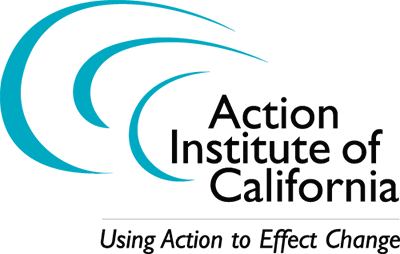Walking the Walk Into A New Year’s Resolution
 As the New Year is upon us, many people have made resolutions to get on a path of new behavior – giving up something, like smoking or cursing – or a new path of adding something, like starting an exercise program or meditating consistently.
As the New Year is upon us, many people have made resolutions to get on a path of new behavior – giving up something, like smoking or cursing – or a new path of adding something, like starting an exercise program or meditating consistently.
And while the idea of change is admirable, within a few weeks most people have abandoned their resolution. They set themselves up by being unrealistic of what they’re going to change, and then feel demoralized that they weren’t able to do it. What makes it worse is that they end up beating themselves up for “failing.” You might not think that psychodrama can help in a situation like this, but it can.
The psychodramatic technique of Future Projection can help not only set the intention for something new in 2016, but it might actually help you follow that path and see it through – or more precisely, feel it through. Let’s face it – we can all talk a good game and have the best of intentions, but as the Chinese say, “Talk doesn’t cook rice.”
A psychodramatic Future Projection is an opportunity, through action, to step into the future and speak from or be in that place. It’s an acting as if; a chance to really feel into what it is like when you arrive at that place and not just imagine it. It’s an opportunity to “try on” walking the walk and not just talking the talk.
By activating all five of your senses through Future Projection, it can help you ground this new behavior in your body and in your life. Say, for example, someone has a resolution to exercise five times a week to feel more healthy and let go of some weight. In a Future Projection, a Psychodrama Director can invite the Protagonist to pick a time in the future (three months, six months, a year, etc) and have him actually step into that place and see and experience himself there, rather than just talking about it. (In Psychodrama, the therapist is known as the Director and the person who is exploring something in action is known as the Protagonist.)
Director (D): So I’ll invite you to step into the future and look around and tell me where you are, speaking in present tense.
Protagonist (P): It’s June, 2016. It’s early morning and I’m on the bike here at the gym peddling away.
D: So as you look around, what do you notice?
P: Well, there are lots of people here working out – on bikes, treadmills and lifting weights. Actually one of things I’m noticing is that there are a lot fewer people here this morning than there were about 4 or 5 months ago. It was packed here in January and February, and I feel really good that I’m one of the people who has stuck it out.
D: What else do you notice? Do you hear anything or smell anything or taste anything?
P: I smell a faint combo of sweat and antiseptic because I got here when they first opened and the cleaning crew was here overnight. I can taste the sweat dripping down my face andI have my earplugs in so I can’t really hear anything other than my own music, and I prefer it that way.
D: What else do you notice physically?
P: Well, I notice that it’s not nearly as difficult to do 45 minutes on the bike as it was a few months ago. It takes me much longer to get winded and feel tired when I’m riding, which feels really good. The workout clothes I bought in January are now feeling kind of loose on me so I may have to buy a new pair of bike shorts that fit better. Actually, now that I think of it, all of my clothes are looser in general, and I really like that. I also had my annual physical last month and both my blood pressure and cholesterol are better, so my doctor even cut back my medication. That feels terrific. I have more energy these days and people keep telling me how good I look, are I REALLY like that.
D: That’s great! So as you sit there on the bike, what’s the most important thing you’ve learned in this 6 months?
P: I’ve learned that if I try to go to the gym after work, I don’t go, but because I’m here first thing in the morning, it’s easier for me to show up. I’ve also learned that resolving to exercise five times a week was a total set up – I almost quit like most people did sometime in mid-February. But I hung in there and accepted that three times a week is more realistic, and because I got real with myself, I’m actually being consistent.
D: If you look back at that guy in December, 2015, what would you like to say to him about his New Year’s resolution?
P: (Looking at the chair where he was originally sitting). You can do this, dude. It’s not as hard as you thought it was going to be. Just get up and do it. I promise you, as I sit here, it’s totally worth it. I feel like a million bucks!
D: Great. Now reverse roles back to December, 2015, please.
The protagonist returns to his original seat and is invited to look at himself in the June, 2016 location.
D: So you’ve heard what that June, 2016 guy said to you. Is there anything you want to say in response?
P: Yes, I always think it’s so hard to get started and you (exerciser in 2016) helped me see that the change can happen. I just have to keep going and keep showing up. I’m glad you “blew my cover” and convinced me that mornings are better. You’re right, and now that I see you and feel you sitting there, I believe you.
D: Great. Do you need to do anything else before we close this drama for today?
P: No, I’m good. Time to buy a new pair of sneakers.
Unlike just talking about making a change, just imagine what a difference it can make to step into the experience and really feel all of what it feels like – the smells, the sounds, etc – and develop a realistic perspective and plan, rather than just an idea of something. If you can practice something, you’re more likely to do it.
So what’s your new path? What might your future projection experience look like and feel like? If you take a few minutes to step into that future place and tap into the feeling – using all five of your senses – you might just be able to make the change, and stick with it.
Happy New Year!
